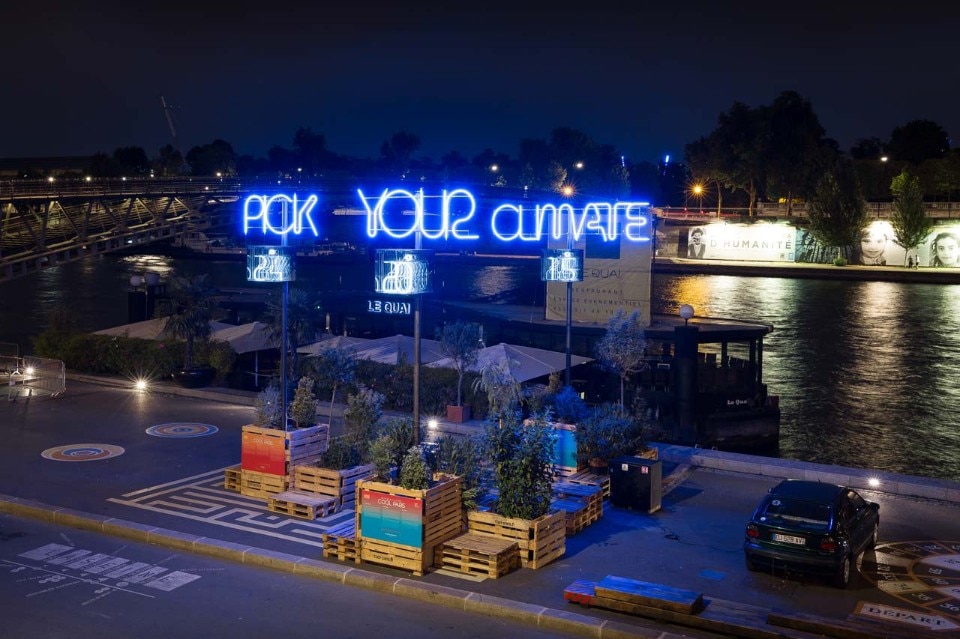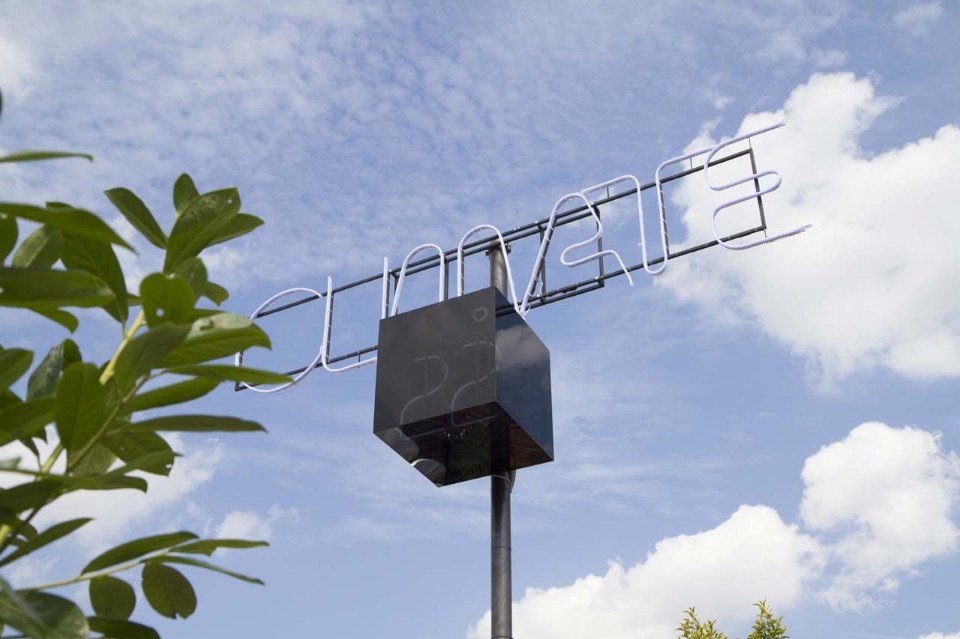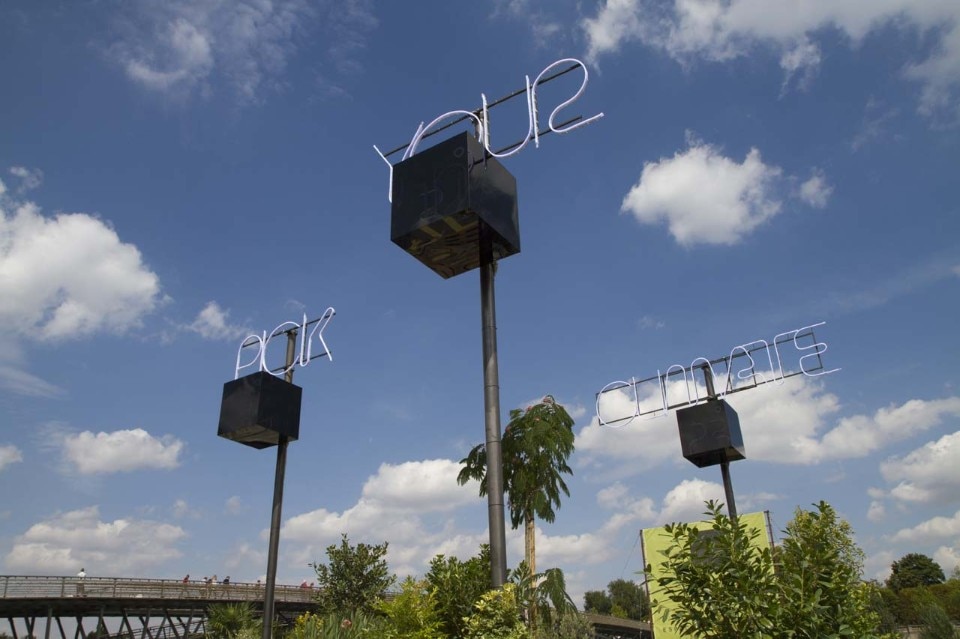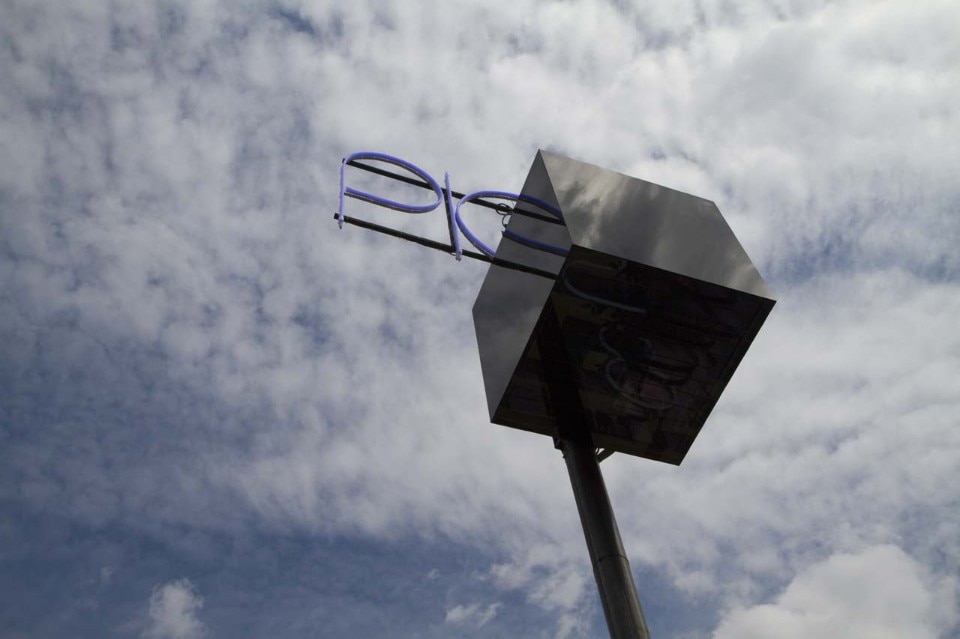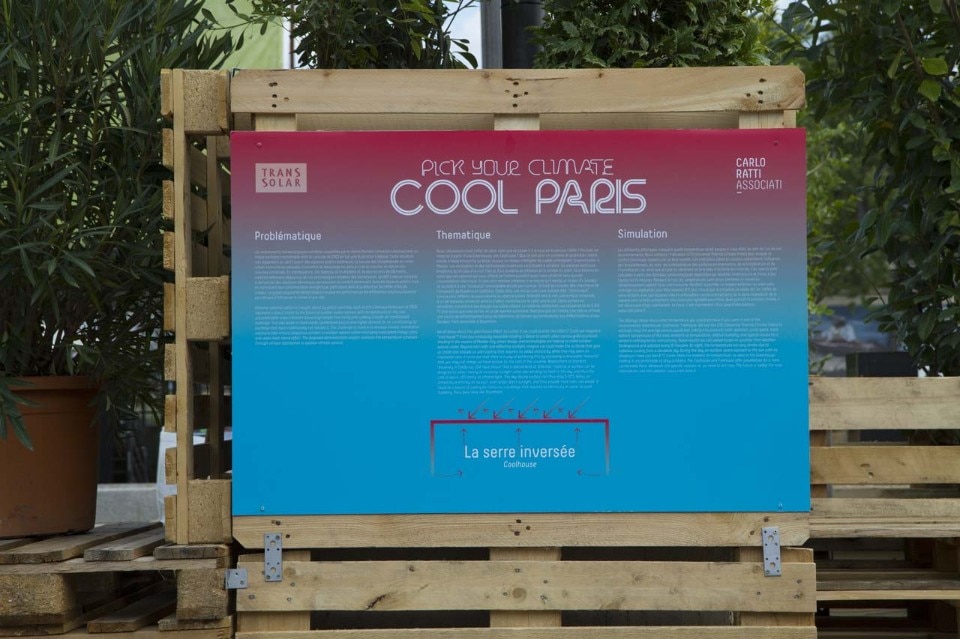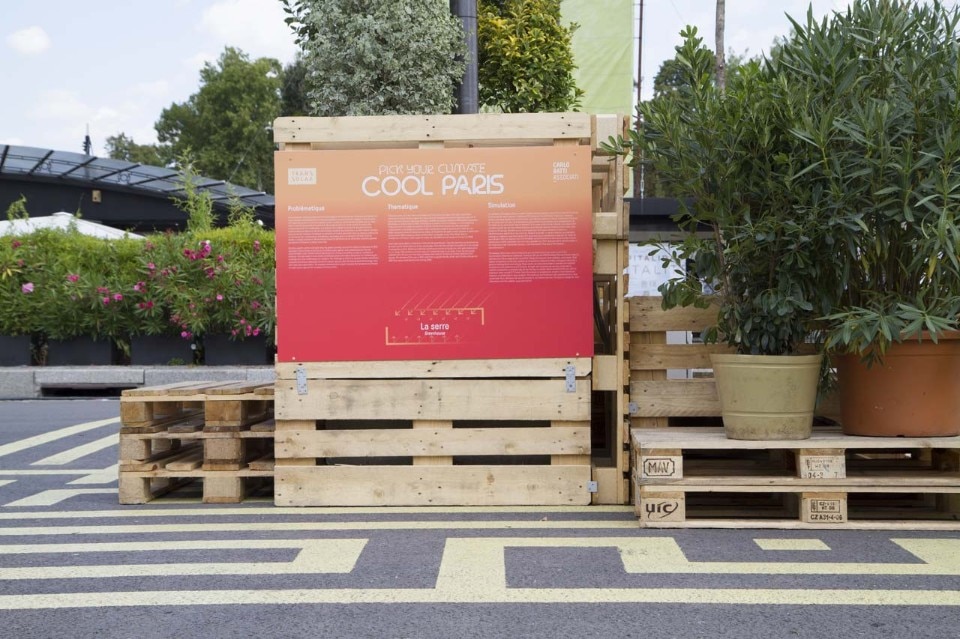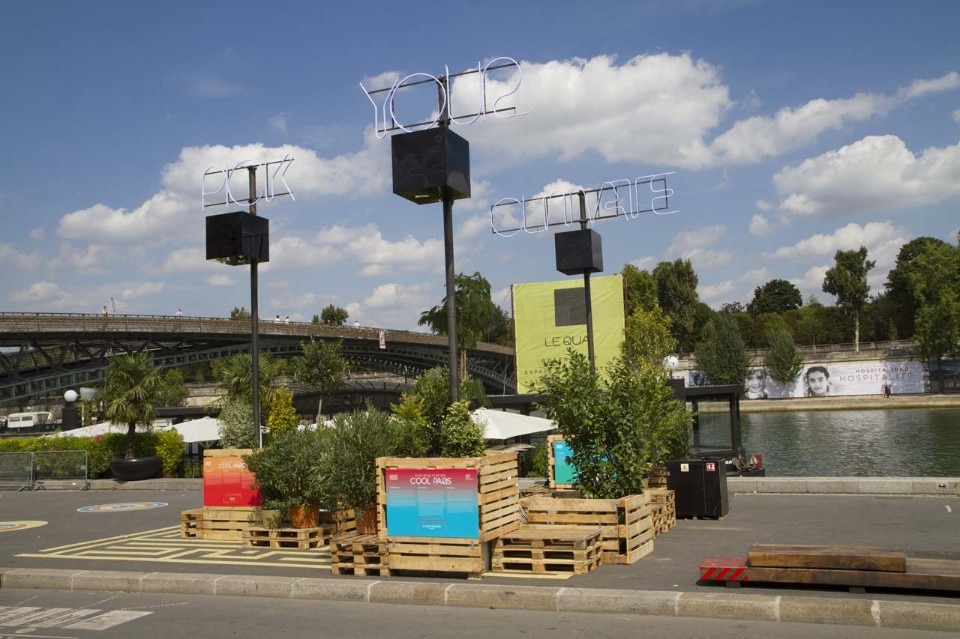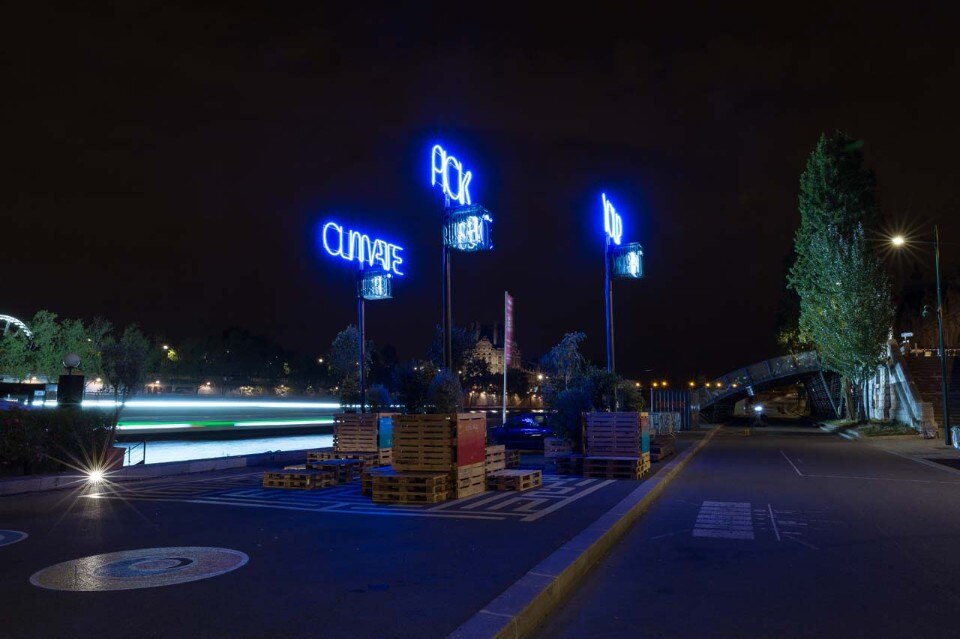
“Since primary school, we’ve all studied how greenhouses (sometimes also called hot-houses) work: they are enclosures that let in the sun’s short wave radiation, while trapping long wave radiation. As a result, temperatures increase.
Now imagine doing exactly the opposite: finding a material that would reflect incoming short wave radiation from the sun, while letting the earth radiate to outer space. The result would be a net cooling of the city – something we could call a cool-house,” says Carlo Ratti. Theoretically, if one were able to cover a large urban area in an optimized material we could reach temperatures below zero even during the summer. In reality, today’s membranes can achieve decreases in temperature of several degrees.
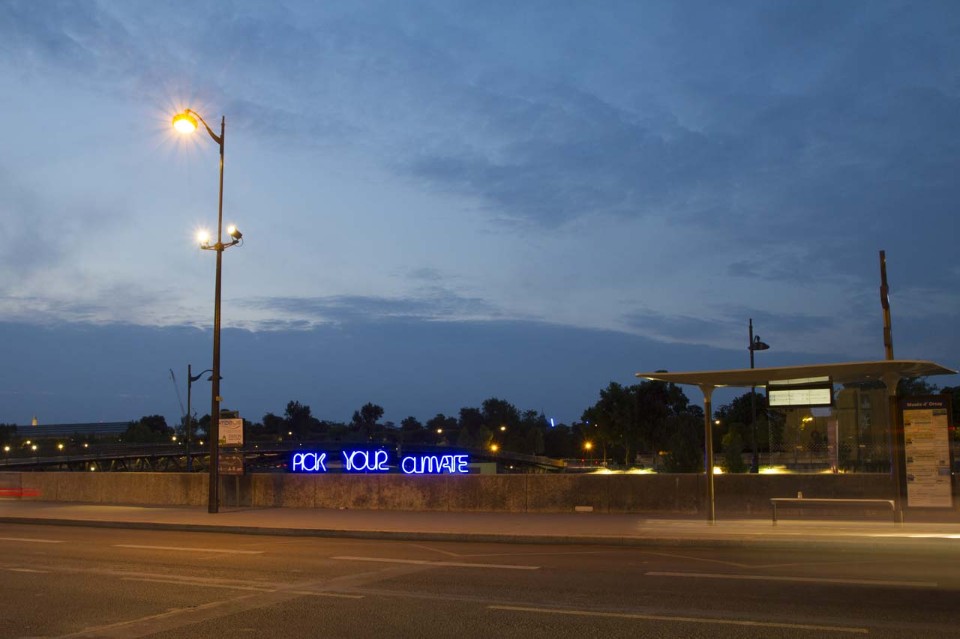
“The demonstration project in Paris explores different types of membranes and uses advanced computer simulations to evaluate what the overall effect would be in Paris,” explains Thomas Auer, managing director of Transsolar. “The principle is nothing new: green canopies in cities are very effective and have been used to a similar effect for centuries. However, in the coming years, new synthetic membranes will open up unprecedented opportunities.” While cooling at zero energy cost may seem an impossible idea, it turns out that there is a way of achieving this by harnessing a renewable “resource” that we may not realize we have access to: the extreme low temperature of the universe.
Researchers at Stanford University in California, USA, have shown recently that a special kind of ‘photonic’ material or surface can be designed to reflect nearly all incoming sunlight while also sending its heat to the sky, and thus the cold of space, as infrared light. This sky-facing surface can thus stay several degrees below air temperature entirely on its own, even under direct sunlight, and thus provide more than just shade: it could be a source of cooling for tomorrow’s buildings that requires no electricity or water. Suddenly, Paris feels more like Stockholm or Reykjavik.
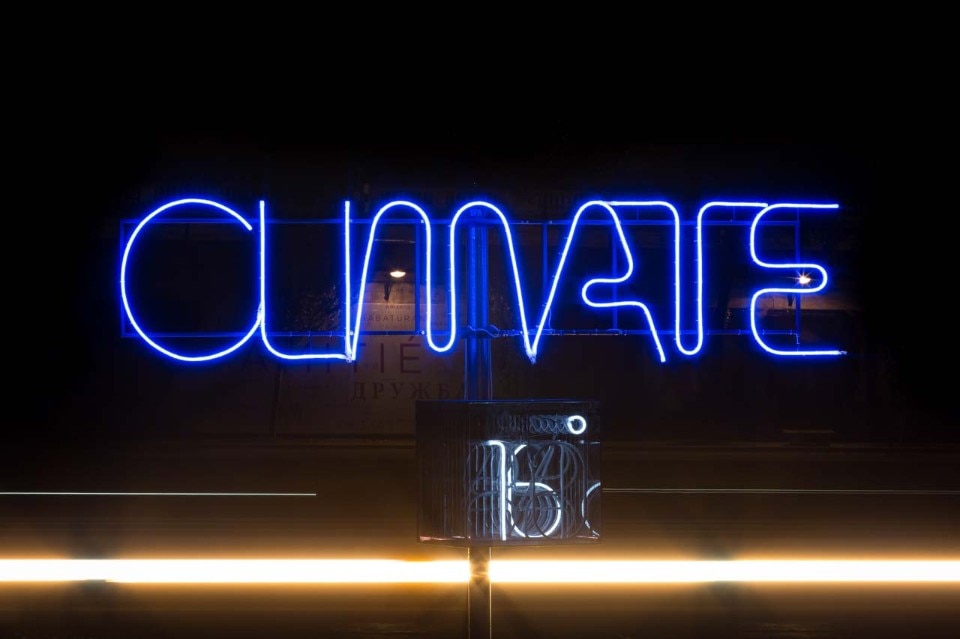
The Paris demonstrator showcases 3 different materials to create 3 different climate modification options, namely: Greenhouse, Coolhouse, and Treehouse. Results of the simulation are shown on site and in real time on the website.
The three displays use the UTCI (Universal Thermal Climate Index) to estimate how the average person would feel, taking into account: solar radiation, wind speed, mean radiant temperature of the area, ambient air temperature, relative humidity, and typical values for a person’s clothing factor and activity. Results are calculated based on weather from Weather Underground and updated every 15 minutes.
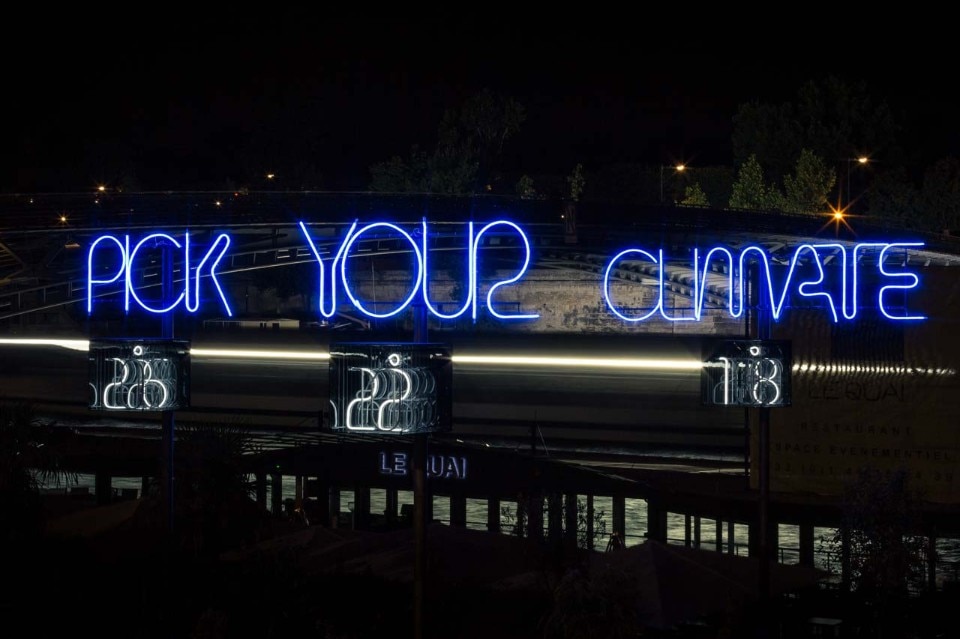
until October 4, 2015
Transsolar and Carlo Ratti Associati
Cool Paris
Berges de Seine, Paris

